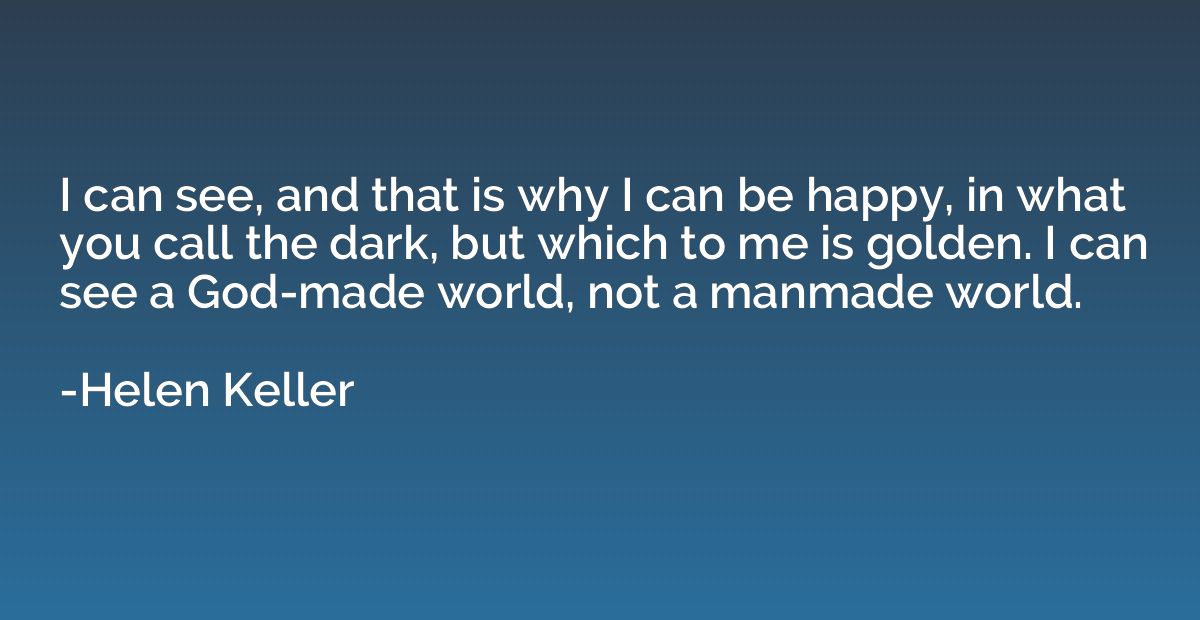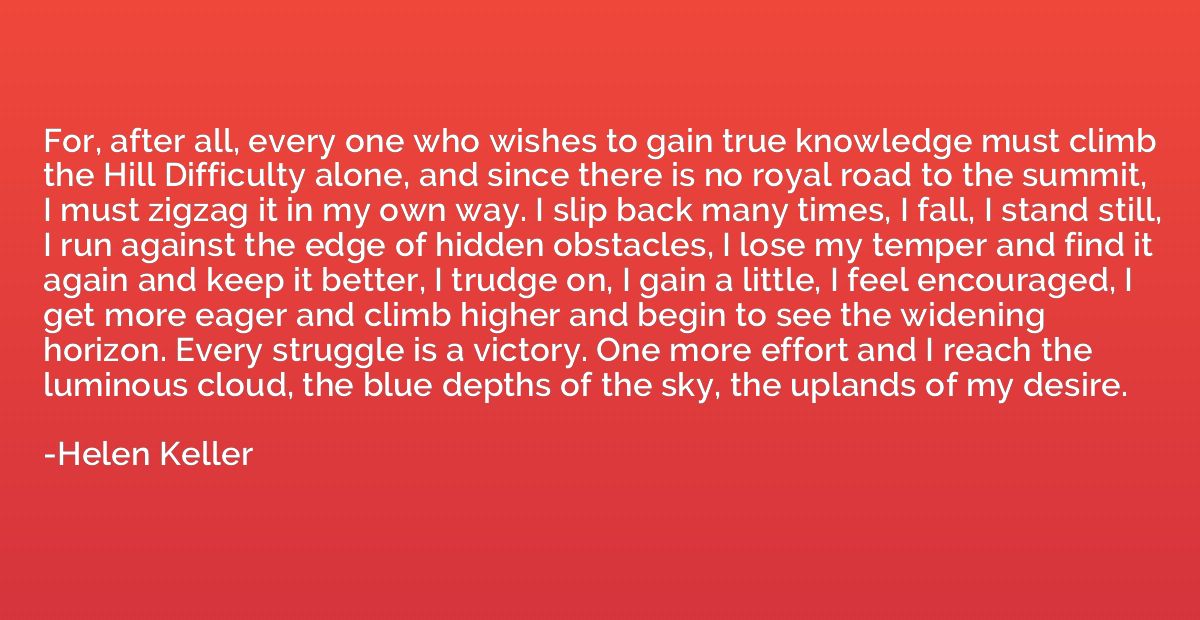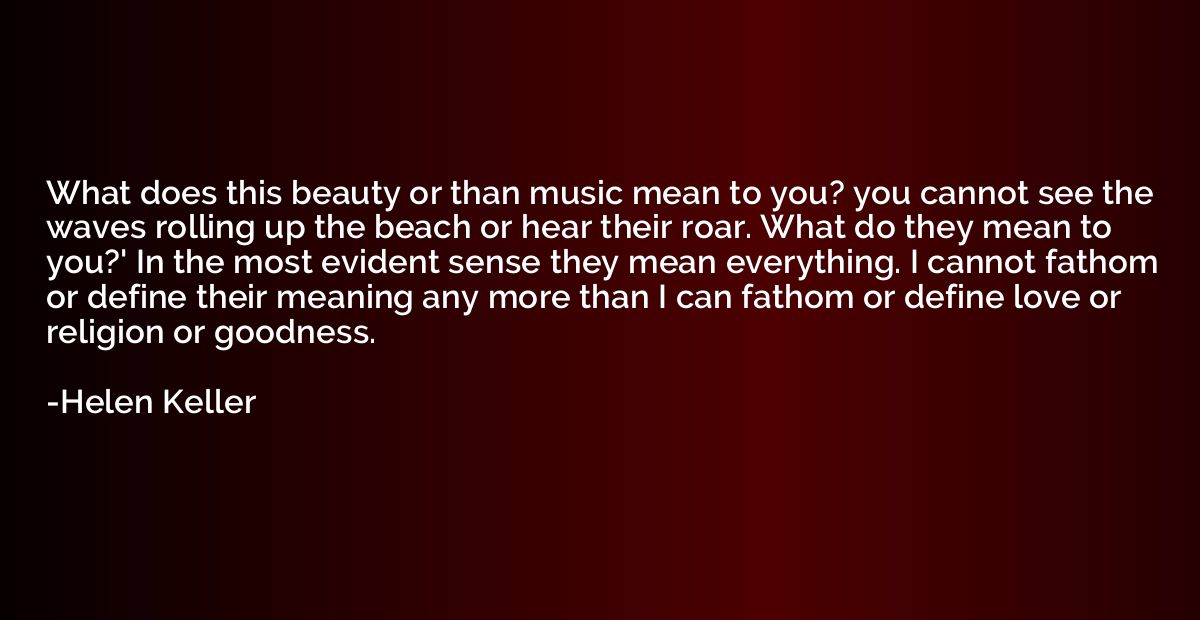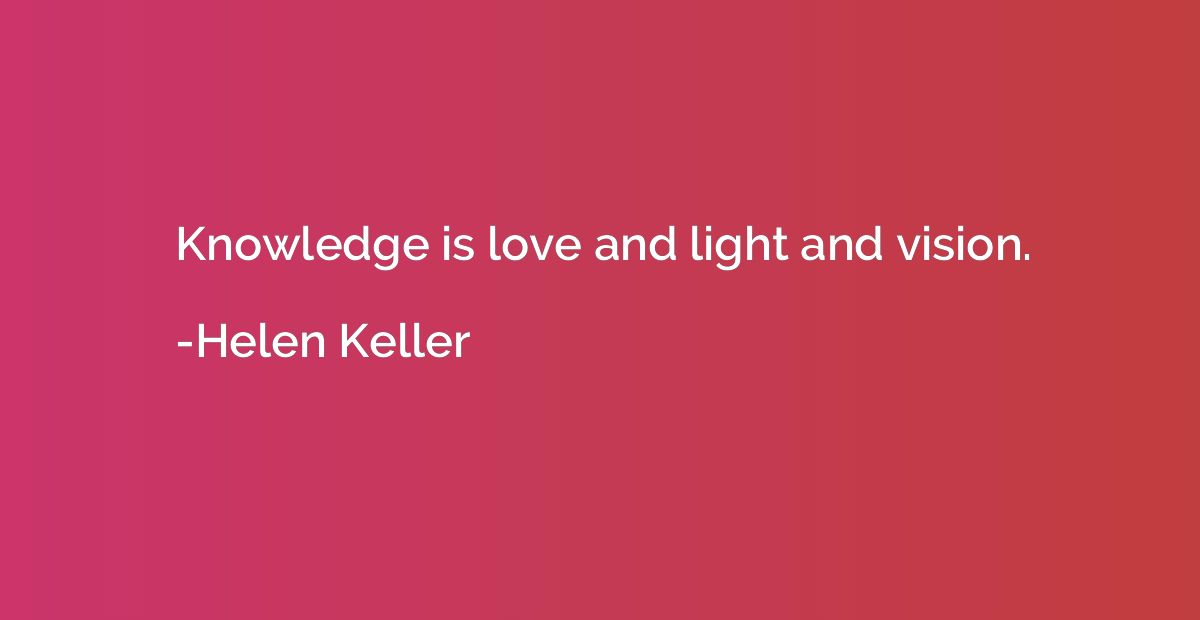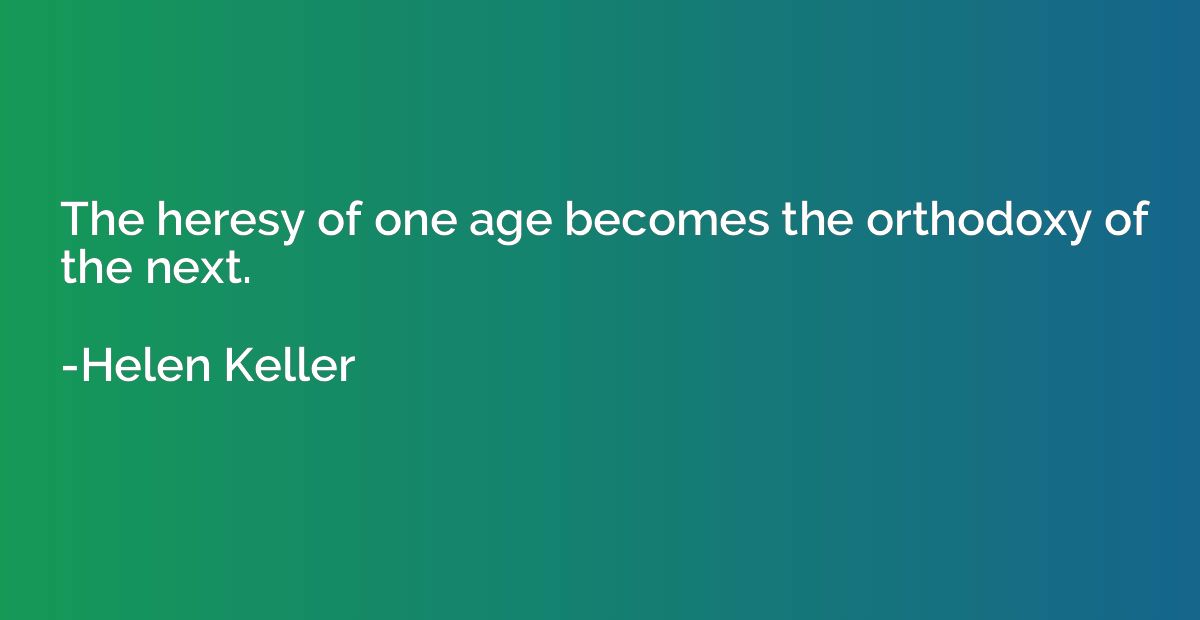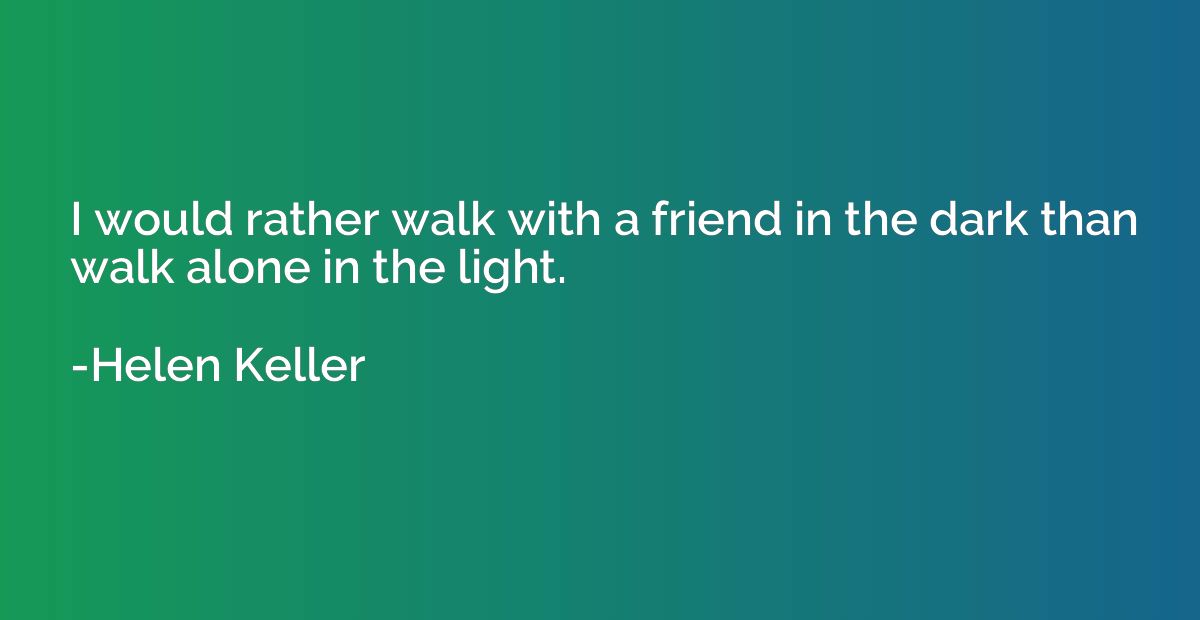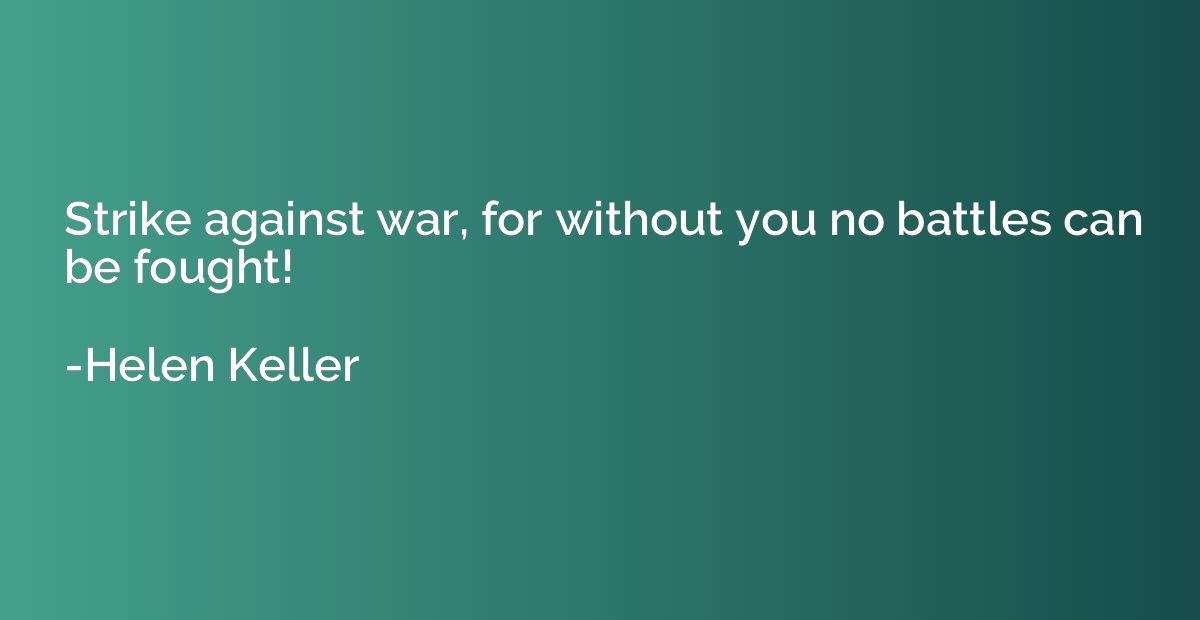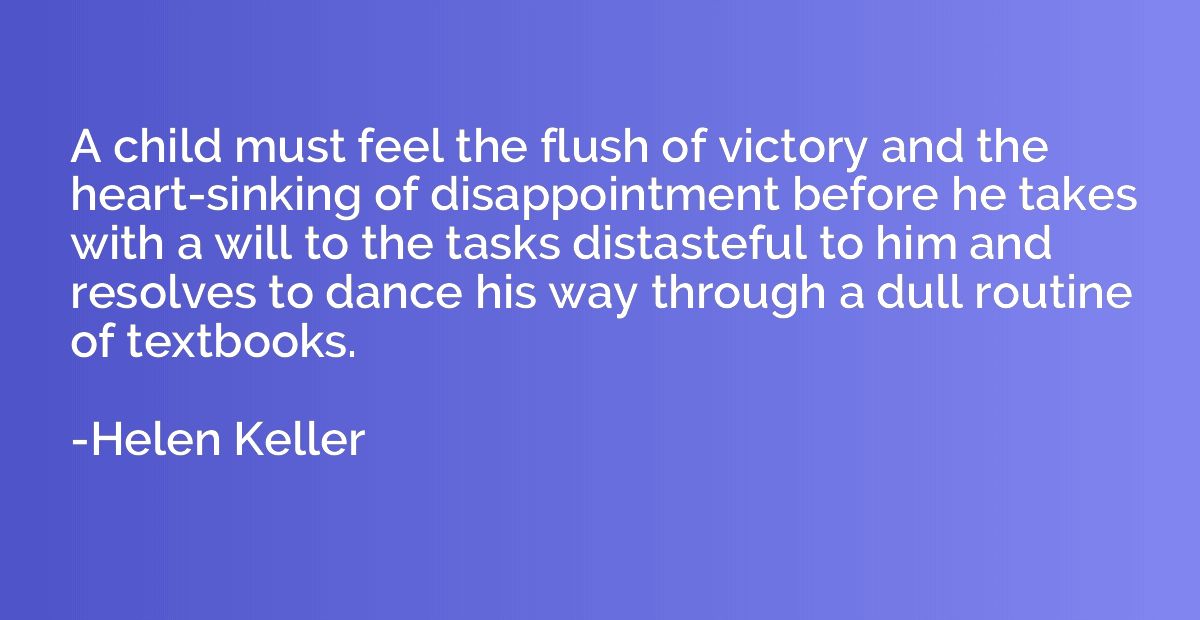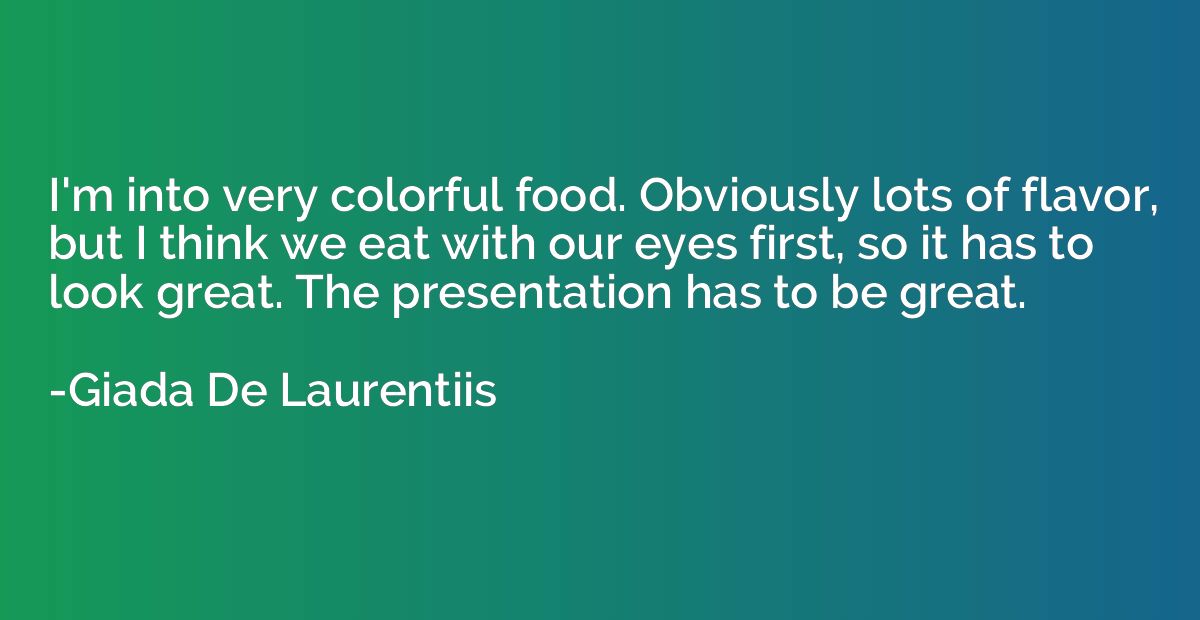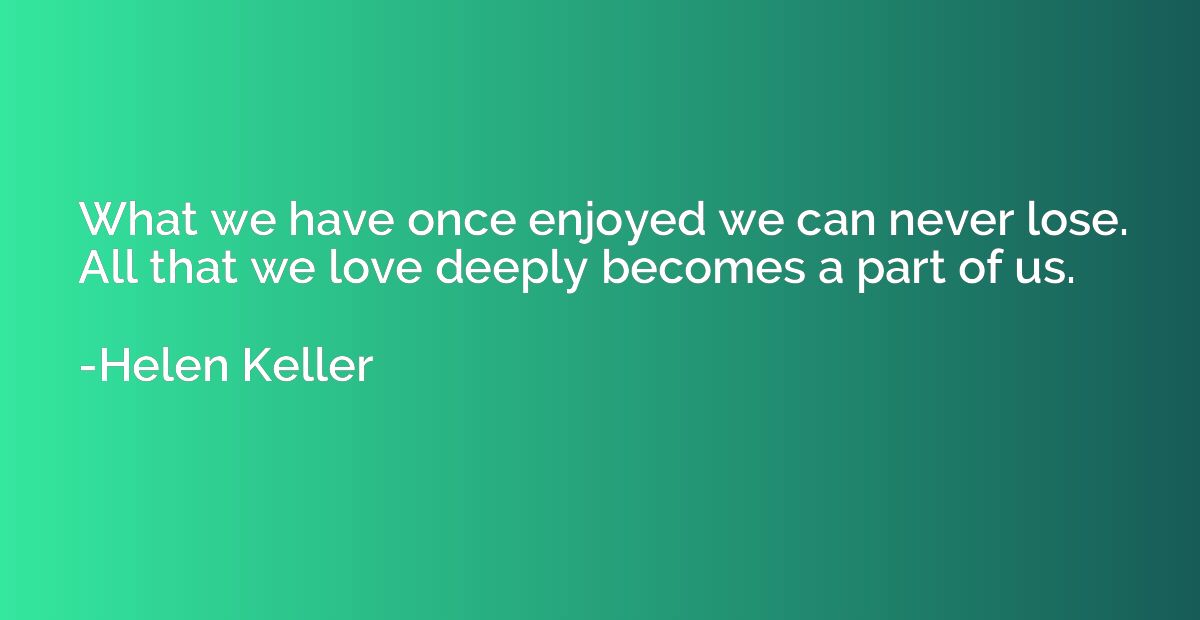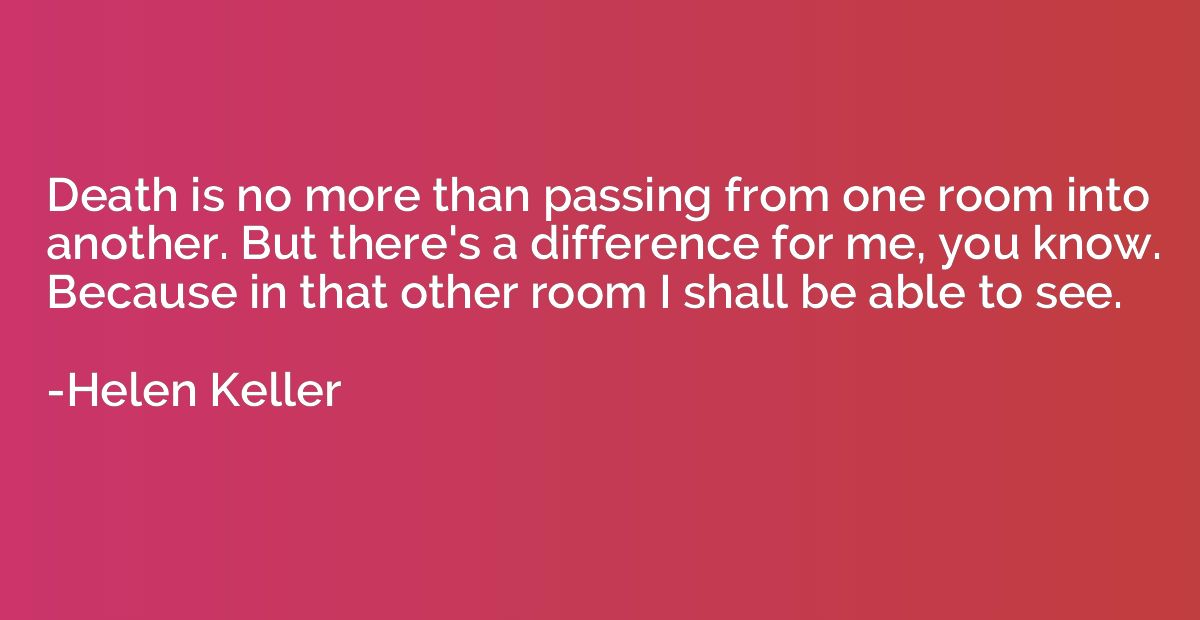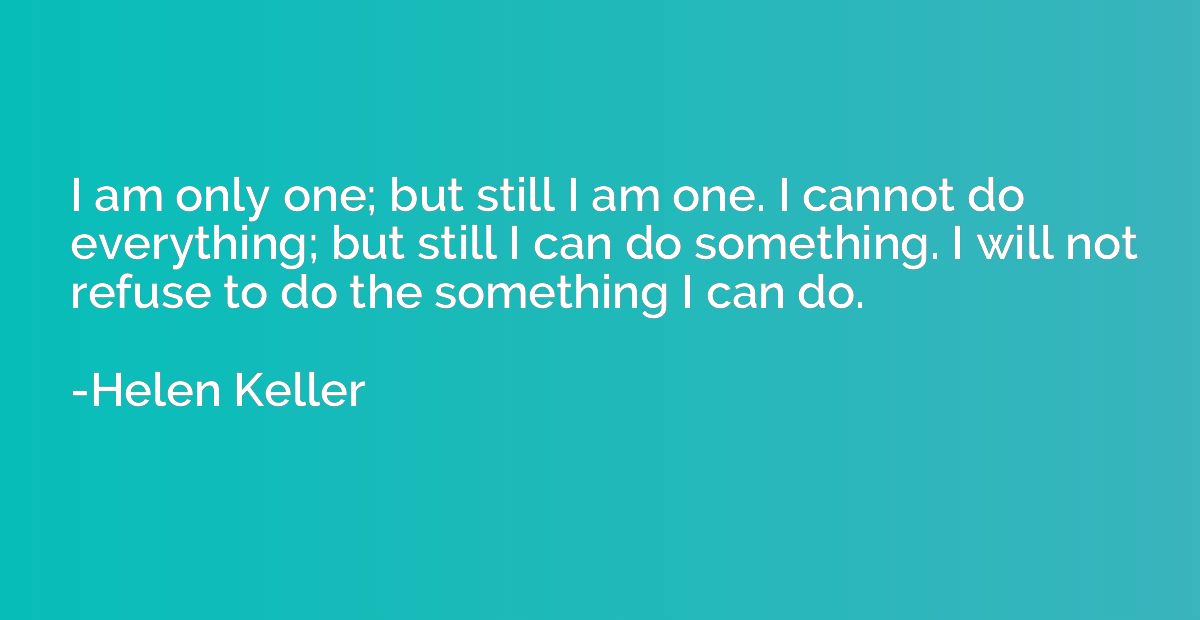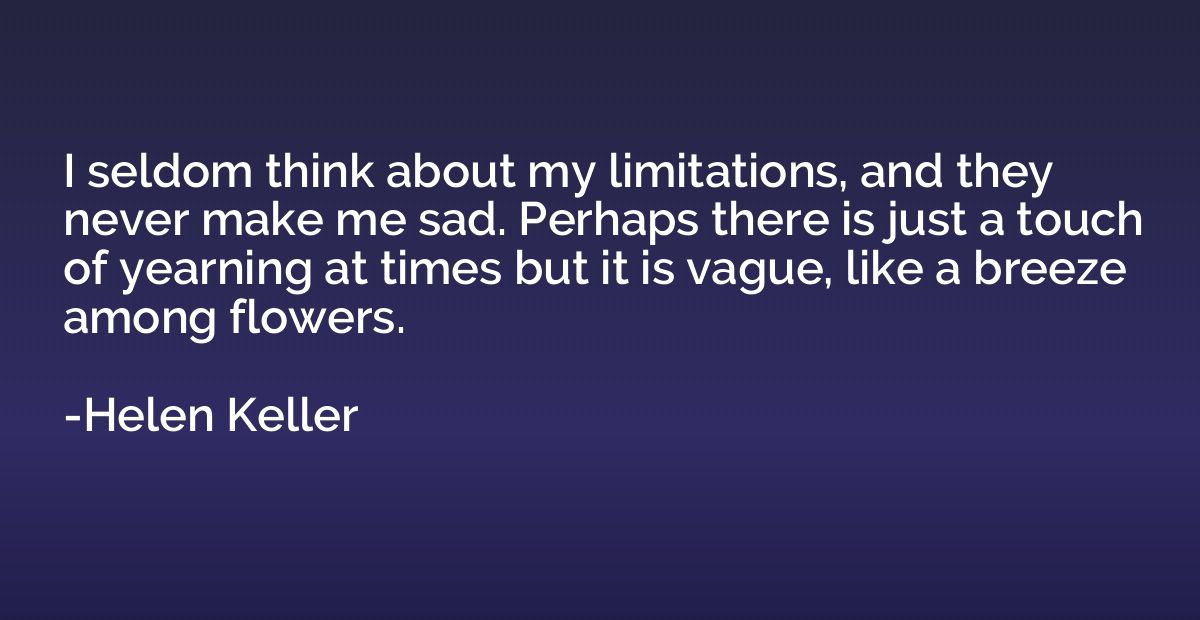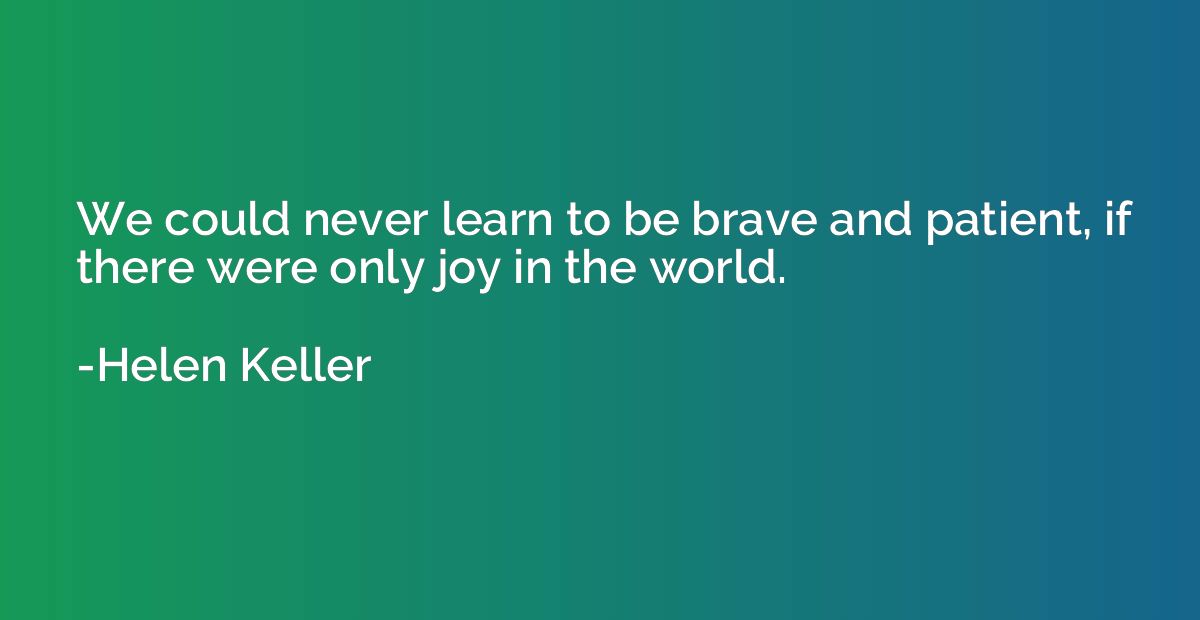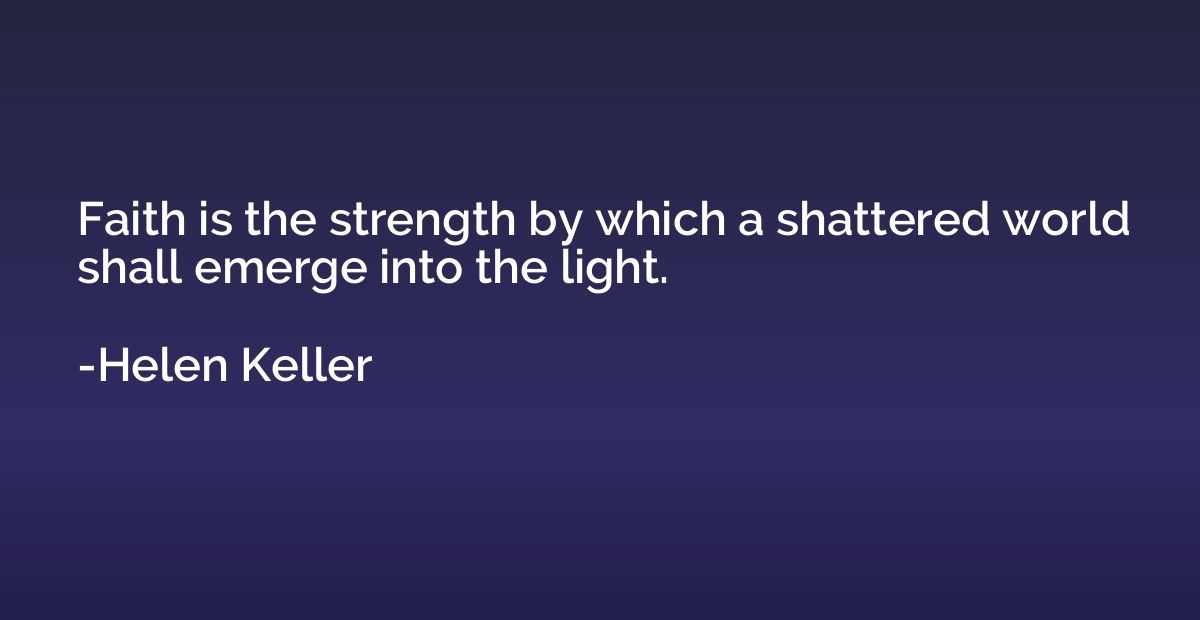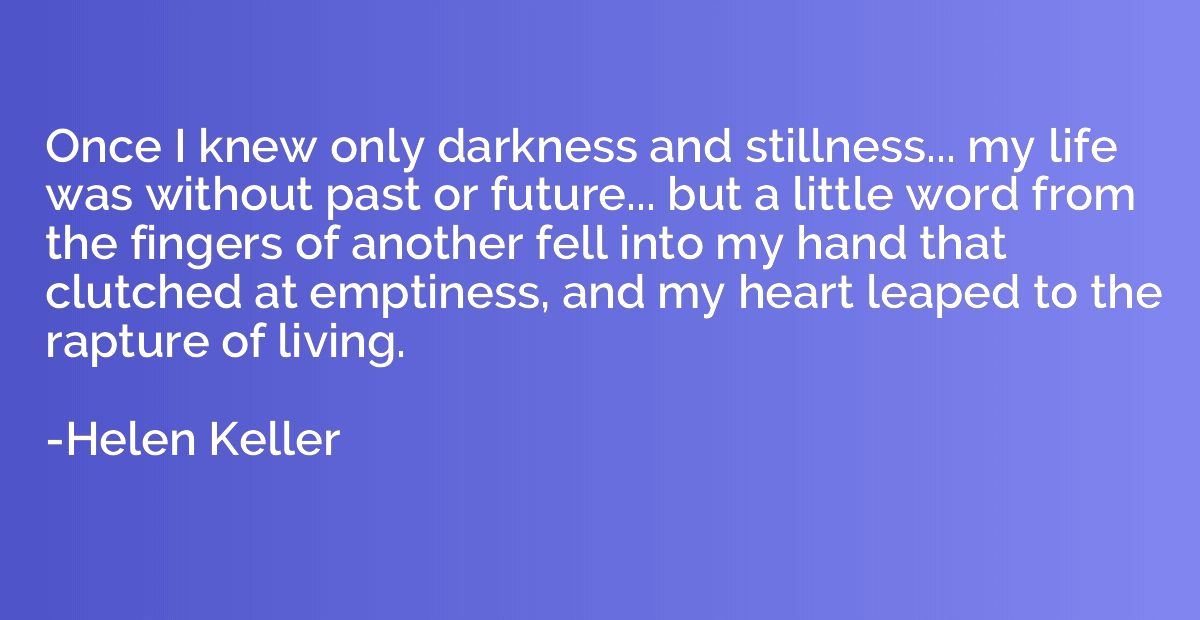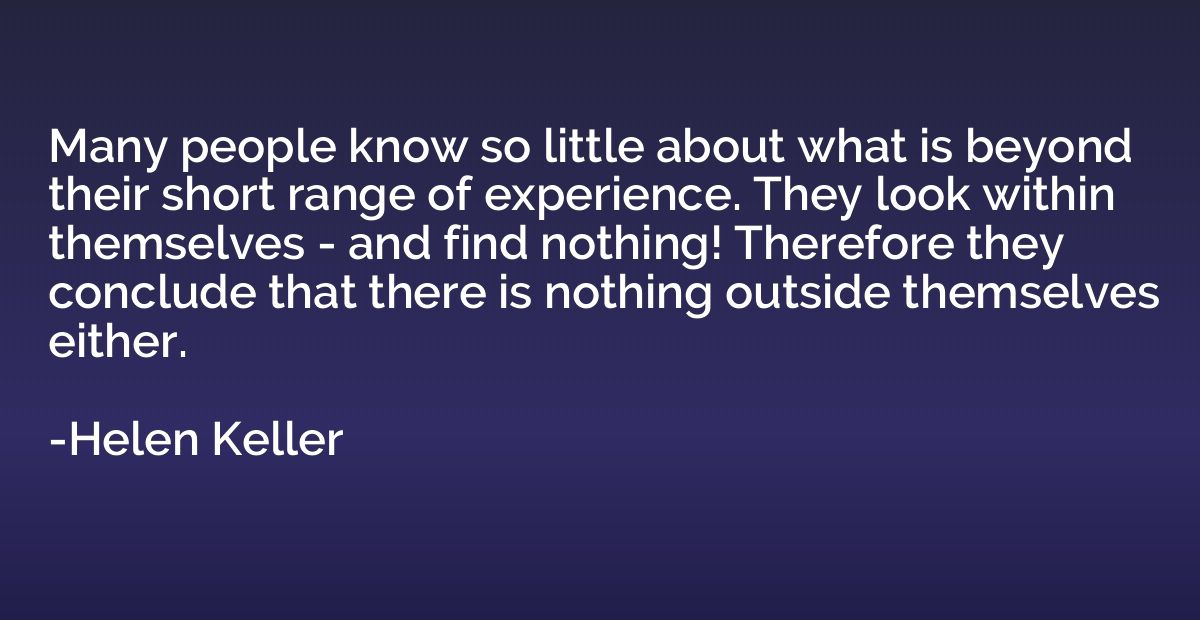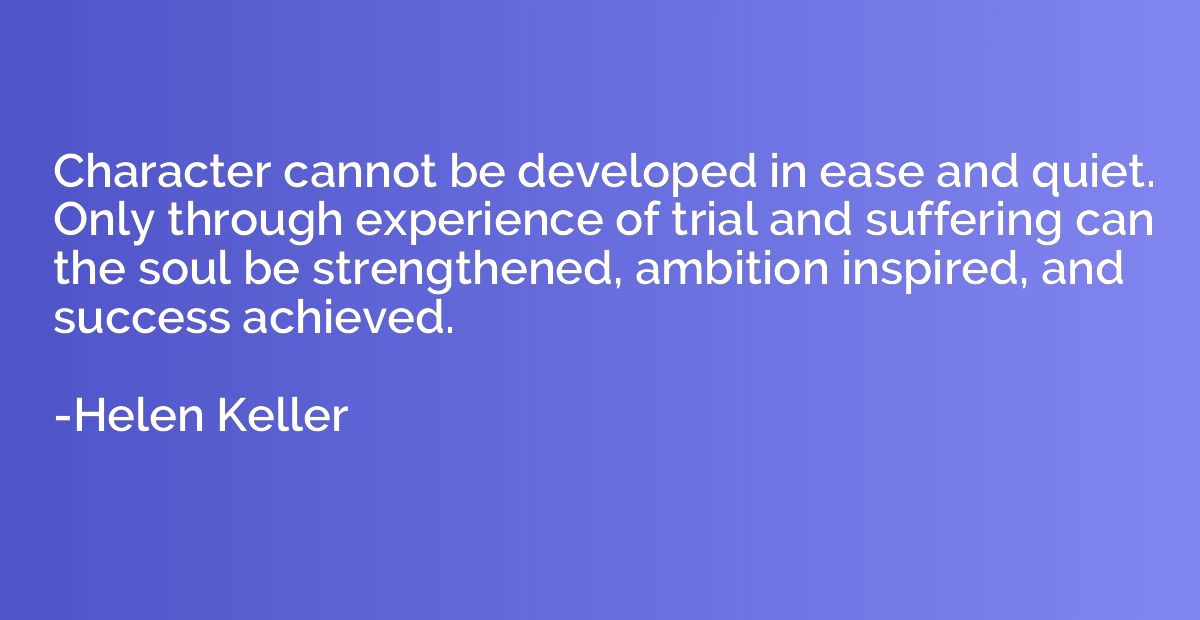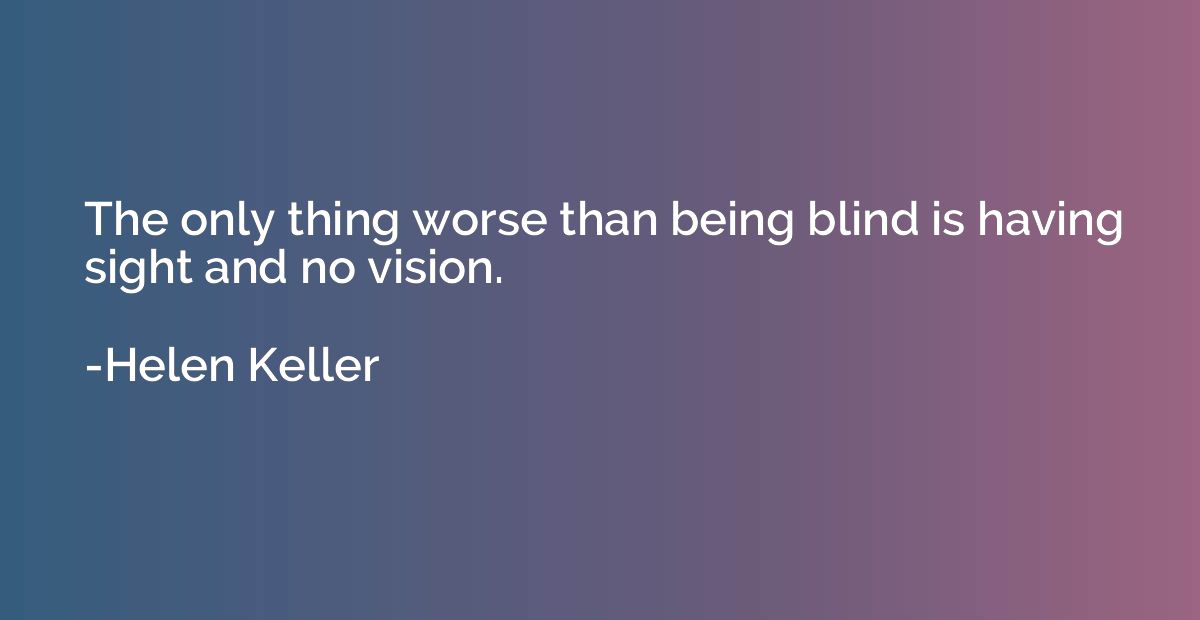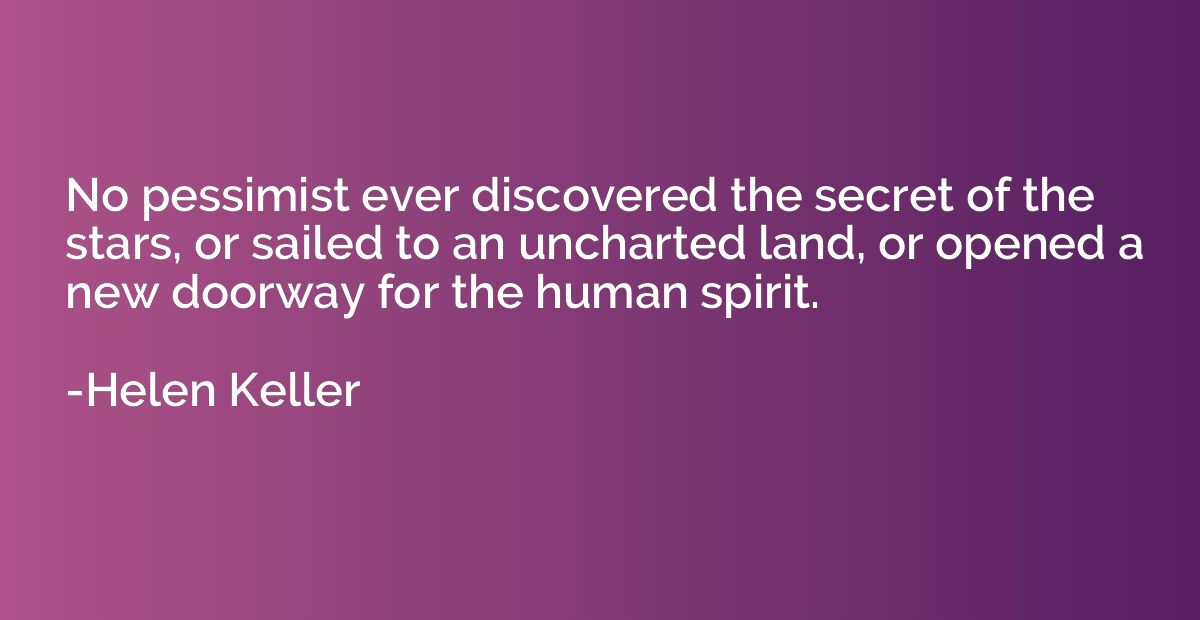Helen Keller Quotes
A collection of quotes by Helen Keller.
Helen Keller was an American author, lecturer, and activist who became a powerful inspiration to millions of people worldwide. She was born on June 27, 1880, in Tuscumbia, Alabama. At the age of 19 months, Keller contracted an illness that left her blind, deaf, and mute. Despite these challenges, she overcame her disabilities with the help of her dedicated teacher, Anne Sullivan.
With Sullivan's guidance, Keller learned to communicate through tactile sign language and eventually developed her own system of finger-spelling. Keller attended Radcliffe College, becoming the first deaf-blind person to earn a Bachelor of Arts degree. Throughout her life, she advocated for the rights of people with disabilities, advocating for improved education and social conditions.
Keller's remarkable achievements and resilience garnered international recognition. She wrote several books, including her autobiography, "The Story of My Life," which was published in 1903 and remains an enduring classic. Keller also traveled extensively, delivering speeches and lectures to inspire others and raise awareness about the capabilities of individuals with disabilities.
Helen Keller's unwavering determination and her activism made a lasting impact on society, paving the way for advancements in deaf-blind education and shaping public perceptions of disability. She passed away on June 1, 1968, leaving behind a legacy of courage, perseverance, and hope.
